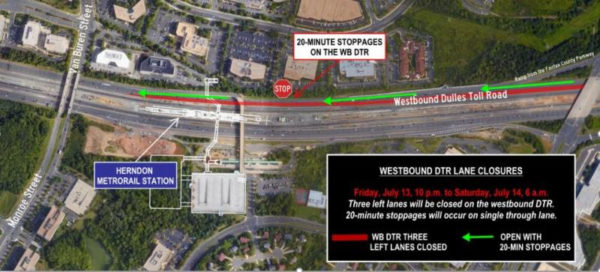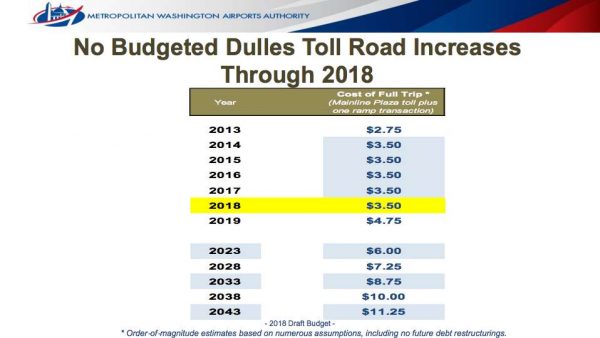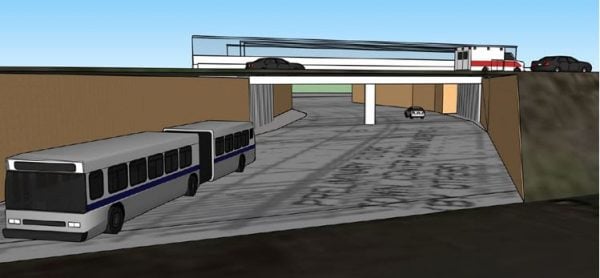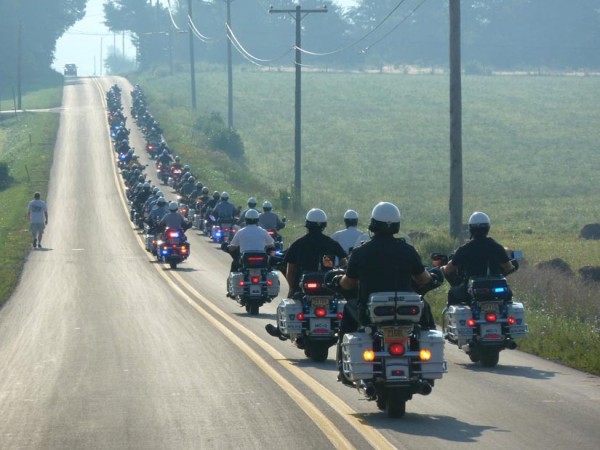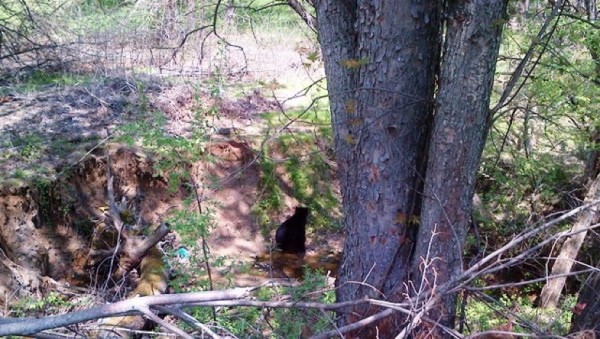Search Results for "dulles toll road"
The Metropolitan Washington Airports Authority Board of Directors voted Wednesday (Nov. 14) to increase rates on the Dulles Toll Road for the first time since 2014.
The hike will raise the toll from $2.50 to $3.25 at the main toll plaza and from $1 to $1.50 on ramps, starting in January. The rate increases are necessary to fund the Silver Line extension project and improvements on the Dulles Toll Road, according to the MWAA.
The decision came “after careful consideration of public input received at the three toll rate public hearings held this summer, the public comments received on-line and the recommendation of the Dulles Corridor Advisory Committee,” said Warner Session, chairman of the Airports Authority Board.
In 2014, an agreement froze increases before tolls rose again to continue funding Silver Line construction. “Under the contract governing construction of the Silver Line, the Airports Authority is required to use revenues from the toll road to help fund the [Silver Line] project,” according to a Nov. 14 MWAA press release, adding that other funding includes Fairfax and Loudoun counties, the Commonwealth of Virginia, the Airports Authority and the federal government.
Last month, a federal appeals court in Richmond affirmed the dismissal of a lawsuit challenging the tolls helping to fund the Silver Line construction.
MWAA held a public hearing in Reston back in July to hear feedback on the proposed rate increases. The Dulles Corridor Advisory Committee reviewed and recommended the rates adopted by MWAA’s Board, according to the press release.
The next expected toll rate increase is planned for 2023.
Photo via MWAA
A stinky situation on the Dulles Toll Road has resulted in a lane closure and a significant cleanup effort.
A garbage truck’s load of trash caught fire this afternoon, shortly after 4 p.m., prompting the truck driver to dump the burning refuse on the side of the westbound Dulles Toll Road near Wiehle Avenue.
The fire was extinguished and the effort to remove the charred garbage is now underway. According to WTOP, the ramp from Wiehle Avenue to the westbound lanes of the toll road are currently blocked.
I deleted the tweet, sorry pic.twitter.com/wPLu4ziVHW
— Chris McNulty (@Vaphilly624) September 19, 2018
Quite a garbage situation. pic.twitter.com/cfnnGHHQFB
— Katherine (@scarletalphabet) September 19, 2018
Beginning tomorrow (July 12) and on Friday night (July 13), triple lane closures on planned on the Dulles Toll Road after 10 p.m.
Dulles Corridor Metrorail Project crews will continue to install equipment under the pedestrians bridges at the Reston Town Center and Herndon Metrorail Stations that cross over the eastbound and Westbound lanes of the Dulles Toll Road.
Three lanes will be closed, resulting in 20-minute traffic halts after midnight each night.
Beginning Thursday at 10 p.m., three left lanes of the eastbound Dulles Toll Road will be closed to traffic between the Monroe/Van Buren Street and Reston Parkway overpasses. One right lane will be open to traffic and 20-minute stoppages will occur in the right lane of the eastbound lanes after midnight. Lanes will reopen on Friday at 5 p.m.
On Friday at 10 p.m., the three left lanes of the westbound Dulles Toll Road will be closed to traffic between the Wiehle Avenue and the Monroe Street/Van Buren Street overpasses. One right lane will be open to traffic and 20-minute stoppages are planned after midnight on the right westbound lane and on the ramp from Fairfax County Parkway to the westbound Dulles Toll Road lanes.
Normal operations will resume on Saturday (July 14) at 6 a.m. Utility work is expected to continue through July.
Maps via Dulles Corridor Metrorail Project
The Metropolitan Washington Airports Authority will hold a public hearing in Reston on July 17 to hear feedback on proposed rate increases along the Dulles Toll Road.
Under the proposal, commuters would pay fifty cents more at ramp plazas and seventy-five cents more at the mainline plaza beginning in 2019. According to the MWAA, rate increases are necessary to fund the Silver Line extension project and improvements on the Dulles Toll Road.
The public hearing is scheduled for July 17 from 5-8 p.m. at South Lakes High School (11400 South Lakes Drive). Two other hearings will be held at Spring Hill Elementary School in McLean and Stone Bridge High School in Ashburn.
Attendees are encouraged to comment on how the planned toll increase of $1.25 for a typical Dulles Toll Road trip should be allocated between ramp and mainline plazas. The MWAA is also seeking comments on whether toll plaza lanes that allow customers to pay with cash should be converted to “E-ZPass only” tolling.
Comments on other operational improvements, including whether or not credit cards should be accepted at toll plaza lanes, are also encouraged.
MWAA representatives will be on site to discuss the proposal. Translators will also be available at each public hearing. The public engagement period will run from July 2 through August 3. Comments can be submitted to [email protected].
The MWAA’s board is expected to vote on planned toll increase later this year.
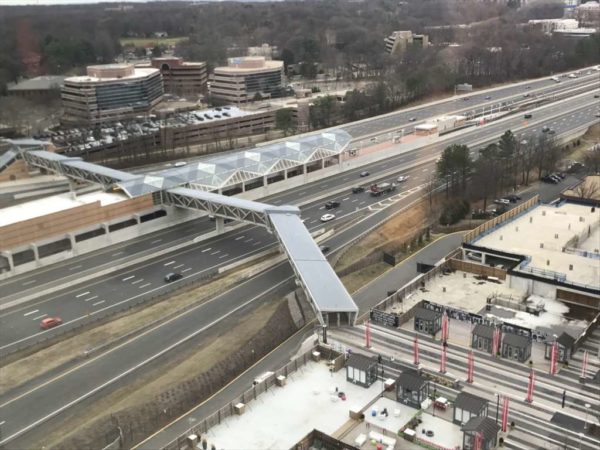
Commuters on the Dulles Toll Road could pay 75 cents more at the main toll plaza and 50 cents more at each ramp. The proposal will be presented to the Metropolitan Washington Airports Authority’s Board of Directors on Wednesday (June 20).
If approved by the board, tolls would increase from $3.50 to $4.75 for most one-way trips beginning in January. Rates would be higher for larger vehicles.
In 2019, tolls are expected to generate $198.7 million in revenue, nearly 30 percent more than the currently generated revenue. Despite projected increases in revenue, the number of toll transactions is expected to decrease by 6.4 percent next year due to declines in road usage during weekends and off-peak hours.
A nearly 1.5 percent increase is expected until 2023 when the next planned toll increase is scheduled to take effect.
Public hearings on the proposal are set for July 11 in McLean, July 17 in Reston and July 19 in Ashburn. During the meetings, attendees can discuss their thoughts with authority officials, as well as whether or not the board should switch to electronic-only tolling.
The board is expected to vote on the final proposal in October. Plans to increase tolls have been in the works since 2009. Revenue generated from toll transactions would cover debt tied to the Silver Line.
Photo by Fatimah Waseem
For the first time since 2014, Dulles Toll Road rates could increase by about one-third next year.
Motorists have paid $2.50 at the mainline plaza and $1 at exit ramps, totaling $3.50 for the last four years.
Under the plan, tolls would rise to $3.25 at the main plaza and $1.50 at exit ramps, totaling $4.75 overall. Increases would continue in the years ahead, with a $6 toll from 2023 through 2027, $7.25 from 2028 through 2032, $8.75 from 2033 through 2037, and $10 from 2038 through 2042.
Public hearings on the proposal are set for the summer, most likely in July and August. A vote authorizing the Metropolitan Washington Airports Authority to proceed with the process for proposed rate adjustments is set for June 20. Board action on final increases would occur in mid-October.
Officials said the toll increase is necessary to prevent toll revenue from falling below the minimum required to cover debt service costs. Tolls are expected to fund about $2.8 billion of the $5.7 billion cost of the Silver Line project.
Photo by Fatimah Waseem; graphic by MWAA
Users of the Dulles Toll Road can expect to pay more in 2019, according to a 2018 draft budget presented to the Metropolitan Washington Airports Authority Board today.
No increase from the $3.50 toll ($2.50 at the plaza and $1 at the ramp) is planned in 2018; however, it is expected to jump to $4.75 the following year. Numbers presented by the Board’s Finance Committee show that is only the beginning of the hikes.
In 2023, the toll is projected to go up to $6. Additional jumps of $1.25 or more are projected every five years for the following two decades, resulting in an $11.25 toll in 2043.
The toll last increased in 2014, when it went up from $2.75 to the current rate. It steadily increased each year from 2010 to 2014. Prior to that, the toll was $1.25 (75 cents at the plaza and 50 cents at the ramp).
Tolls are used in part by MWAA to help fund the expansion of Metro’s Silver Line. Nearly half the cost of the construction, about $2.8 billion, is being paid by Toll Road fees.
The flurry of construction you see in the median of the Dulles Toll Road near Reston Parkway isn’t all the Reston Town Center Metro Station.
Designers of the Silver Line’s Phase 2 are planning way ahead — perhaps decades from now — when a possible new road will take vehicle traffic under rather than over the toll road.
Crews have started construction of a so-called “land bridge structure” in the median. The bridge will enable the future connecter — a four-lane highway linking Town Center Parkway to Sunrise Valley Drive — to be built without disrupting the toll road, said Dulles Corridor Metrorail Project spokeswoman Marcia McAllister.
The structure is being built in the median of the toll road near mile marker 4.8, approximately 500 feet west of the future Reston Town Center Station. That station is slated to open in early 2020.
The bridge was requested by Fairfax County as an element of the Board of Supervisors’ Six Year Transportation Priorities for FY2015 to FY2020. The county pledged $8.7 million for the $157 million underpass project in late 2014.
Building the bridge-like structure in advance would minimize any impact to Silver Line Phase 2 service during future construction of the planned roadway, McAllister said.
Graphic: Rendering of land bridge on Dulles Toll Road/Credit: Dulles Corridor Metrorail Project
If you are traveling on the Dulles Toll Road near Washington Dulles International Airport on Friday, be advised of some potential backups and closures due to America’s 9/11 Ride.
There will be lane closures between 2 and 6 p.m. Friday, Aug. 19 to accommodate the large procession of motorcycles through the region, says the Metropolitan Washington Airport Authority.
The America’s 9/11 Ride is expecting about 1,500 motorcyclists to participate in a ride from Shanksville, Pa., to the Pentagon then to New York City.
On Friday, the group plans to travel eastbound from Leesburg along the Dulles Greenway, the Dulles Toll Road, the Dulles Airport Access Highway and Interstate 66 at the beginning of the afternoon commute.
Traffic procedures during the motorcycle procession will include:
Eastbound traffic leaving Dulles International Airport will have unimpeded access to the eastbound Dulles Airport Access Highway (all the way to I-495 and I-66) and Route 28 north and south, but not to the eastbound Dulles Toll Road. Access Highway traffic will share the road with the motorcycle procession east of Hunter Mill Road.
NOTE: local exits prior to Route 7 in Tysons will not be available from the Access Highway. Route 28 or Route 7 are the recommended alternates.
Traffic on Route 28 will not be able to exit to the eastbound Dulles Toll Road. Ramps to Dulles Airport and the Dulles Greenway will remain open.
Eastbound Traffic from the Dulles Greenway will merge to one lane to join the eastbound Dulles Toll Road. The motorcycle procession will occupy the closed lane.
The eastbound Dulles Toll Road will be divided in the center by cones. The two left lanes will be reserved for the motorcycle procession, while the two right lanes will be for local traffic.
All westbound lanes and ramps of the Dulles Access Highway and Dulles Toll Road will operate normally.
The motorcycle procession will come from the Dulles Greenway and travel the left side of the eastbound Dulles Toll Road for several miles. It will then cross to the right lane of the Dulles Access Highway and continue inside the beltway to I-66. The Virginia State Police will facilitate the movement of the procession from there.
The airport authority says all eastbound traffic in the Dulles corridor should plan extra travel time and expect delays.
Meanwhile, this is the last year of the ride after a clash between the event’s organizer and state governments, ARLnow.com reports.
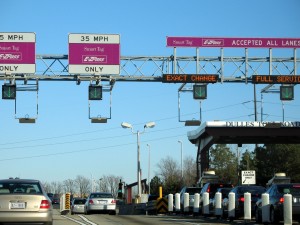 In an effort for efficiency, more lanes on the Dulles Toll Road will become E-ZPass only, the Metropolitan Washington Airports Authority said on Wednesday.
In an effort for efficiency, more lanes on the Dulles Toll Road will become E-ZPass only, the Metropolitan Washington Airports Authority said on Wednesday.
Beginning Sept. 2, MWAA will convert 19 exact-change lanes into E-ZPass lanes. First up: Westbound Fairfax County Parkways exit, far right lane.
During the conversion project coin baskets will be removed and replaced by upgraded E-ZPass infrastructure. Conversions are scheduled for unattended “exact change” lanes at the main toll plaza and exit ramps along the roadway, says MWAA. To minimize congestion, lanes will be reconfigured one at a time, with each conversion taking two-to-four weeks. When the project is complete, all toll plazas will still have at least one “full service” lane available.
“This lane conversion continues the long tradition of providing a convenient, consistent travel option for drivers in Northern Virginia,” Dulles Toll Road Manager Cyndi Ward said in a statement. “About 90 percent of drivers currently using these lanes are already paying with E-ZPass rather than coins. Full-service lanes will continue to be available at all toll plazas along the roadway for those wishing to pay with cash, but we encourage drivers to consider the added convenience of E-ZPass in order to bypass the lines associated with cash payments.”
Don’t have an E-ZPass? Sign up for one at ezpassva.com.
MWAA will announce other lane conversions as they are about to occur so drivers can plan accordingly.
Photo: Dulles Toll Road/file photo
Fairfax County Police say residents need to be on the lookout for black bears.
Over the weekend, there were several bear sightings in Vienna, said Fairfax County Police spokeswoman Lucy Caldwell.
A bear was reportedly hit on the Dulles Toll Road Saturday morning between Beulah Road and Hunter Mill Roads, the latter of which borders Reston. A resident of the 1600 block of Fremont Lane in Vienna called in a report of a bear in his backyard Saturday at about noon.
Caldwell said police do not know if it was the same bear or two different bears.
There are usually a few bear sightings each year — there were several near Baron Cameron Road and Reston Parkway a few years ago — says Caldwell. However, late April is very early for the bears to be out, she said.
“It is unusual to see them in April,” she said. “In past years we have seen them in June.”
Animal Control Officers say should not panic or feel alarmed when they see one.
From the county:
Bears typically avoid humans, but in their search for food it is not uncommon to see one. Most often, bears will keep moving through an area once they fail in their attempts to find food.
Unless the animal is sick or injured, or poses a threat to public safety, animal control officers do not take actions to attempt to remove bears from a neighborhood. Black bears have a natural fear of humans, and in most cases, would rather flee than encounter people.
If addressed quickly, wildlife issues caused by food attractants in yards can be resolved almost immediately.
Take the following precautions to keep bears and other wildlife away from your home:
• Do not store trash on porches, decks or in vehicles.
• If a bear is sighted in your neighborhood, remove birdfeeders.
• Take garbage to the curb on the morning of pickup, rather than the night before.
• Consider installing electric fencing around gardens, dumpsters and other potential wildlife sources. Electric fencing is an inexpensive and efficient proven deterrent against bears.
Photo: Bear in Vienna April 26/Credit: Fairfax County Animal Control
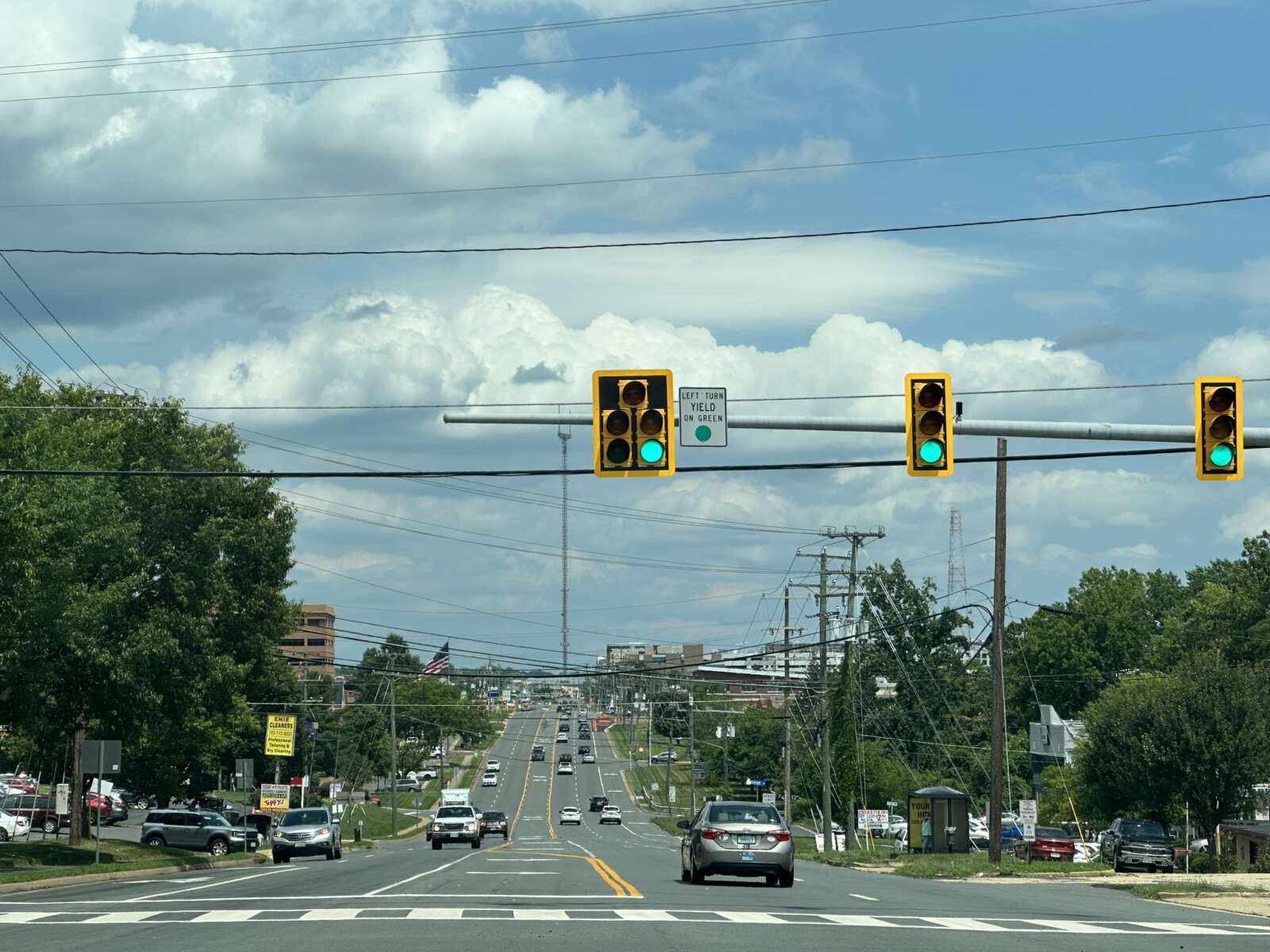
Fairfax County is changing lanes on some of its long-term transportation plans, veering away from a few road-widening projects in favor of ones that involve transit or pedestrian and bicycle upgrades.
As authorized by the Board of Supervisors on Dec. 5, county staff submitted a list of projects for the region-wide Visualize 2050 transportation plan that no longer includes widenings of Route 29 in the Merrifield area, New Braddock Road, Stringfellow Road and Magarity Road in Pimmit Hills.
A project to extend New Guinea Road in Fairfax Station to Route 123 (Ox Road) was also dropped from the county’s submission to the National Capital Region Transportation Planning Board (TPB), which is currently reviewing projects from Virginia, Maryland, D.C. and Metro for the long-range plan.
At the same time, the county added some projects, including Orange and Yellow Line Metrorail extensions and the Route 7 bus rapid transit (BRT) system, that it hopes will pave the way for a less car-centric future.
“I think this is a balanced approach,” said Hunter Mill District Supervisor Walter Alcorn, then the chair of the board’s transportation committee and now its vice chair. “We end up with some additional projects going into the proposed plan, including some very important transit projects, and I note we also are showing five road projects coming out of the plan that I think are clear are no longer appropriate for the long-term plan.”
As a planning organization for the D.C. region, the TPB is required by the federal government to produce a regional transportation plan every four years, most recently finalizing Visualize 2045 on June 15, 2022. But work on the next update started early so new goals for reducing greenhouse gas emissions can be incorporated.
In another change, jurisidictions are also required to resubmit all of their projects instead of carrying them over from one plan to the next like before.
According to the Fairfax County Department of Transportation (FCDOT), decisions about which projects to resubmit, add and take out were based on staff evaluation, conversations with the supervisors and public comments gathered by the TPB and the county, which held two public meetings in September.
It “was a good decision” to remove the New Braddock and Stringfellow road widenings in Centreville, Sully District Supervisor Kathy Smith said. New Braddock Road would’ve been widened and extended from Route 28 to Route 29 opposite Stone Road, while Stringfellow Road was slated to be expanded to four lanes between Route 50 and Fairfax County Parkway.
Providence District Supervisor Dalia Palchik said she worked with staff to ensure there “would not be any negative consequences” as a result of the removal of the Route 29 project in her district.
The county had planned to widen Route 29 from four to six travel lanes between the Fairfax City limit and the Capital Beltway (I-495) in Merrifield, but staff are now reevaluating that stretch of road “to better reflect completed segments and focus on active transportation facilities,” FCDOT says.
Construction is still underway to widen Route 29 from four to six lanes in the Centreville area.
“Since those changes may not be deemed regionally significant by the TPB, a decision was made to not submit this project for the Visualize 2050 Update,” an FCDOT spokesperson said.
The Magarity Road widening would’ve added two lanes to the roadway between Route 7 (Leesburg Pike) and Great Falls Street in McLean.
While some widenings were dropped, the county hasn’t entirely moved away from road projects. On top of the previously mentioned transit projects, the newly submitted proposals include:
- A southside extension of the I-495 toll lanes, though the board has emphasized a need to include transit in the project
- The addition of 11 miles of new I-95 Express Lanes from the Franconia-Springfield Parkway to Opitz Blvd in Prince William County, allowing drivers to travel in the off-peak direction
- The initial phase of the Seven Corners Ring Road, which will curve around the problematic interchange from the west side of Route 50 to the east side of Route 7
- The Cleveland Ramp from the Dulles Toll Road to Scotts Run Crossing/Route 123 in Tysons
The Town of Herndon also requested that the county submit an extension of Fairbrook Drive from Herndon Parkway to Spring Street and multimodal improvements on Sterling Road from Elden Street to Rock Hill Road.
“I think this is another good step, [a] balanced approach forward in making sure that we’re moving people safely and appropriately through our roads,” Palchik said.
The TPB says it will release an analysis of how all the Visualize 2050 projects align with the region’s air quality goals on March 1, opening up a month-long public comment period. The board is aiming to complete the plan in June 2025.
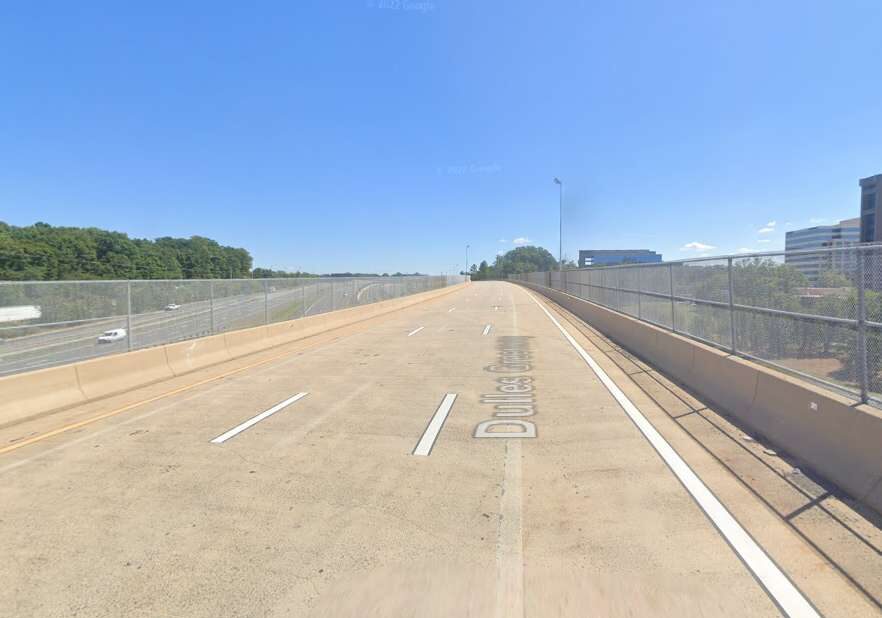
The Office of the Virginia Attorney General is opposing a private toll road owner’s request for a rate increase.
In July, Toll Road Investors Partnership II, the owner and operator of the 14-mile Dulles Greenway that runs between Leesburg and Washington Dulles International Airport, filed a request with the State Corporation Commission to increase tolls by at least 21%.
[On Sept. 29], Attorney General Jason Miyares said he objected to the request. [link added]
“Traffic in Northern Virginia is a daily challenge, and rising inflation only adds to the costs of commuting to work,” said Miyares in a statement. “My office stands alongside Virginia commuters who feel this struggle daily, advocating for fairness and resisting toll increases. Virginians deserve every hard-earned penny, and we’re here to protect Virginians from unreasonable financial burdens.”
TRIP II bases its pricing on the number of axles a driver’s vehicle has, with tolls for two-axle vehicles traveling from one end of the road to the other costing $5.25 during regular hours and $5.80 during rush hour. The proposed new rates for two-axle vehicles would be $6.40 during regular hours and $8.10 during rush hour.
The operator’s last rate increase request was denied in 2021. [FFXnow note: The Dulles Greenway operator’s latest request comes on the heels of the Metropolitan Washington Airports Authority increasing fees on the Dulles Toll Road for the first time in five years, starting this past Jan. 1.]
TRIP II said in its application that the increase will help it meet its financial obligations: “Only with the approval of the proposed tolls along with additional future increases will TRIP II be able to reach a place where it would have an opportunity to provide a reasonable return to its investors.”
Victoria LaCivita, a spokeswoman for Miyares, did not directly respond to whether the attorney general has any interest in lawmakers directing the state to enter into discussions with the toll operator to change how the roadway is managed.
However, she added, “Consumer protection is an important function of the Attorney General’s office. Northern Virginia residents and commuters have voiced strong opinions against the toll increase, and the Attorney General plans to represent that view in front of the State Corporation Commission.”
The proposed increases
TRIP II made the toll rate increase request after the failure this winter of legislation backed by the operator and Gov. Glenn Youngkin’s administration that would have let the state Commissioner of Highways, Secretary of Transportation and a steering committee negotiate new rates for the toll road. The proposal also included plans to reduce toll costs and implement distance-based tolling, which would charge drivers based on how far they travel.
Currently TRIP II is regulated by the State Corporation Commission under the Virginia Highway Corporation Act. That law allows the company to ask the SCC for a toll increase once per year but doesn’t permit it to negotiate those increases.
“TRIP II looks forward to continuing to work with the commonwealth to find a solution to how the Greenway is regulated to implement distance-based tolling,” said Renee Hamilton, chief executive officer for TRIP II, in a statement. “Drivers on other private toll roads in Northern Virginia pay based on the length of their trip. Drivers on the Greenway should be treated the same way. Filing a rate case application with the SCC was not our first choice.”
Since the Virginia Highway Corporation Act was enacted in 1988, the law was amended by two Northern Virginia lawmakers, then-Del. Joe May, R-Loudoun, and then-Sen. Mark Herring, D-Loudoun, to authorize the SCC to set annual tolls during the period from Jan. 1, 2013 to Jan. 1, 2020.
Over the past several years, TRIP II has been granted several toll increases by the SCC. In 1995, the year the road began operating, the company charged $1.75 for two-axle vehicles and $3.50 for all other vehicles.
Since then, the surrounding Loudoun County has grown in both population and traffic congestion. Nevertheless, many drivers have refused to pay the Greenway tolls, and instead rely on other routes to travel through the county.
“Constituents want to pay less if they go to the toll, and that’s the ultimate goal,” said Del. Michael Webert, R-Fauquier, who along with Del. David Reid, D-Loudoun, backed the past session’s bill to change oversight of the tolls.
In a July statement, Reid said TRIP II’s rate increase request follows the Loudoun County Board of Supervisors opposing proposals in recent years that he said would result in toll reductions. The supervisors expressed concern that they would not be included in the discussions and that legislation could lead to the loss of major county tax revenues.
“Because of the board’s active opposition to the bipartisan Northam-Youngkin toll reduction plans, parents, small business owners, service workers, real estate agents, and commuters from Fairfax, Loudoun, Clarke, and Frederick counties are now faced with an unsustainable 40% increase in tolls on the Dulles Greenway,” Reid said in the July statement. “Not only will it cost constituents more of their hard-earned money, this will increase traffic onto our already overcrowded neighborhood streets.”
Webert and Reid’s proposal to alter oversight of Greenway tolls ran into a roadblock this winter when other lawmakers complained the plan did not give the legislature any authority over a potential agreement between the operator and the state. They also voiced concern about an extension of TRIP II’s contract past its current 2056 expiration date and worried the change would lead to the state inheriting the operator’s debt. However, Secretary of Transportation Shep Miller III assured lawmakers that the commonwealth has no intention of assuming the debt.
In December, TRIP II said it carried a debt of $1.2 billion after refinancing twice in 1999 and 2005. The debt was due to such costs as construction, improvements and “weaker than anticipated traffic on the road.”
The operator also pays other expenses such as property taxes to Loudoun County, which have totaled over $65 million since the beginning of the roadway, and fees to the Metropolitan Washington Airports Authority for use of an easement over the Dulles International Airport property.
The new criteria
The SCC will be required to look at TRIP II’s most recent rate request through a different lens than it has used in the past. After the provision under the Virginia Highway Corporation Act expired in 2020, the General Assembly passed a law requiring the company to prove that the proposed increase will not discourage too many drivers from using the roadway, is reasonable for drivers and gives TRIP a fair but not excessive amount of profit.
If the company is unable to prove any of the criteria, the SCC is not authorized to approve the proposed increase for more than one year.
Del. Suhas Subramanyam, D-Loudoun, who carried the legislation along with Sen. John Bell, D-Loudoun, now retired, said he’s not sure how the SCC will decide the current rate request, but believes the bill could help.
“I never feel 100% confident, but I feel more confident than if we didn’t pass the bill because we finally have a framework that helps the State Corporation Commission to protect people from exorbitant tolls that are unjustified,” Subramanyam said.
David Ramadan, a former Republican delegate who for years regularly tried to block measures favorable to TRIP II increasing tolls, said the company has failed to meet the requirements laid out in the 2020 law to request an increase.
“The SCC for the first time can look at the merits of the case without having to honor automatic increases by law,” Ramadan said. “We believe that they don’t have the merits for an increase. So that’s why there should be no action, whatsoever, by anyone legislatively until the SCC considers the rate increase case and adjudicates it.”
Photo via Google Maps. This article was reported and written by the Virginia Mercury, and has been reprinted with permission.
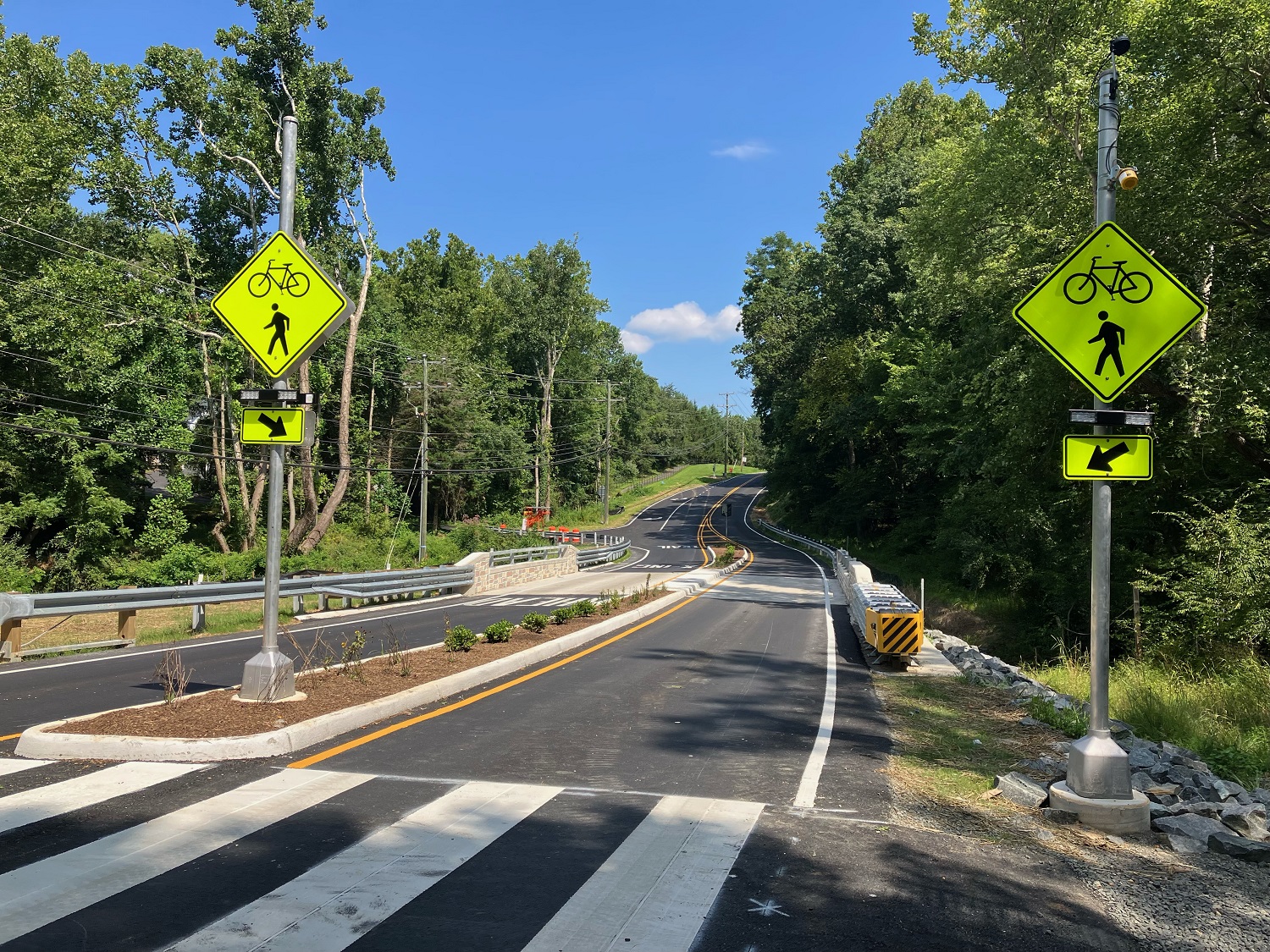
A critical vehicular link between Reston and the Wolf Trap area has been restored.
The new, two-lane Hunter Mill Road bridge over Colvin Run is now fully open, the Virginia Department of Transportation announced yesterday (Wednesday).
Located near Baron Cameron Avenue between Lake Fairfax Park and Colvin Run Park, the expanded bridge has one travel lane in each direction, saving drivers from the hassle and potential confusion of having to yield to oncoming traffic.
More on the project from VDOT:
The new bridge (located between the Dulles Toll Road and Baron Cameron Avenue):
- Improves traffic flow by replacing the nearly 50-year-old weight-restricted one-lane bridge that required drivers to stop if there was traffic crossing the bridge in the other direction
- Includes a median/splitter island separating the two lanes to improve safety
The Hunter Mill Road over Colvin Run Bridge Replacement project, which is now complete, also includes:
- An improved trail crossing south of the bridge
- Landscaping in the median/splitter island
- Abutments for a future trail bridge over Colvin Run (the rest of the trail bridge will be constructed by Fairfax County)
Construction on the project began approximately two years ago in August 2021. Built in 1974, the previous bridge had just one lane and was limited to carrying 10 tons at a time, even though the road was used, on average, by 8,500 vehicles per every day, as of 2019.
One lane of the new span was completed in December.
The project cost a total of $5.2 million, relying on funds from the federal, state and Fairfax County governments.
Hunter Mill Rd drivers don't need to yield to oncoming traffic at Colvin Run in #Vienna anymore – the two-lane bridge fully opened today! The now complete project also includes a raised median and an improved trail crossing south of the bridge.
Read more: https://t.co/N92AqLAo8P pic.twitter.com/yMjBU8R87H
— VDOT Northern VA (@VaDOTNOVA) August 9, 2023
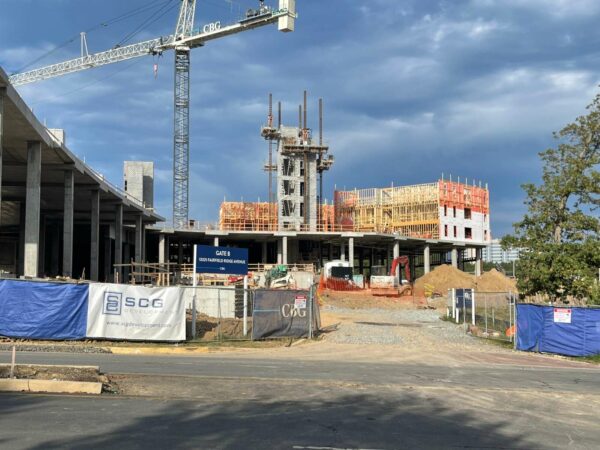
Construction crews are moving forward on an affordable residential complex at Arrowbrook Centre by the Dulles Toll Road and Centreville Road.
As of Thursday, owner SCG Development reported it had completed 31% of the project, dubbed Ovation at Arrowbrook, setting its sights on an early 2023 completion.
“We will begin pre-leasing units at the end of 2022,” Jennifer Schneider, SCG vice president of development, said in an email.
The project will make 274 affordable apartment homes for households earning between 30 and 60 percent of the area median income. It will remain designated as affordable for at least 50 years.
The development will include 55 three-bedroom units and 15 handicap-accessible units.
It will be located next to Arrowbrook Center Park, a townhome and condominium community that Pulte will develop. A high-rise building with a hotel, offices, and condominiums is also planned on the site, Reston Now previously reported.
The development puts it next to a soccer field and the forthcoming Innovation Center Metro station. Other projects nearby going up by the transit stop include Passport apartments and Liberty Park condos and townhomes.



